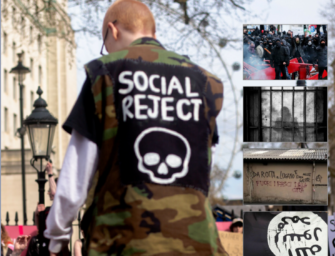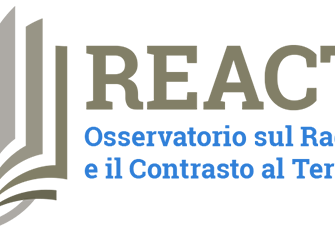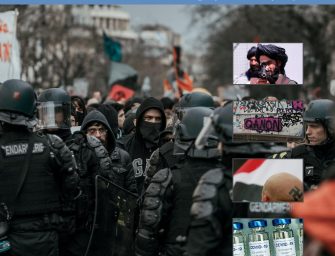QAnon: the new global threat?
by Andrea Molle
Scholars and analysts typically look at conspiracy theories focusing on their conduciveness to fake news and the adverse effects on the electoral process. However, the attention should now increasingly be switched to assessing their security implications, especially in the case of QAnon.
QAnon has been able to exploit mechanisms of “gamification” and “customization,” typical of some ARG (Alternate Reality Games) and open-world videogames to spread. Mainly exploiting existing social networks, the movement has had repercussions in real life and inspired violent actions, which have dramatically increased its appeal, just as in LARP (live-action role-playing game) groups.
Violence associated with QAnon should be analyzed and challenged in the same manner as religious terrorism and deviant cults to which the group shares the following traits:
- First, QAnon is structured as theology, which has gradually become a paradigm through which adherents perceive and interpret reality in a distorted fashion. In social psychology, this effect is known as apophenia, or the recognition of patterns and logical connections in random and nonsensical data.
- Secondly, QAnon has a prophetic, eschatological worldview. It can be summarized in the idea that the world is experiencing the final stages of a cosmic war between Good and Evil. Any failure of such a prophetic framework, like Trump’s political demise, will not result in the end of the movement. Indeed, there are safeguard mechanisms that are activated to contain the damage and ensure that group members engage in acts of rationalization, often ritualistic and in some cases involving violence, to assure the survival of the movement.
- Thirdly, QAnon is an all-inclusive experience, whereas affiliates are embedded in a social bubble, made up of people with substantially homogeneous opinions. This process facilitates a dynamic that in sociology is defined as “social encapsulation,” the isolation of the subject from external influences that could compromise his socialization and loyalty to the group. Followers of QAnon also display an alarming and growing level of hyper-aggression in interpersonal interactions.
- Finally, social characteristics such as lower culture, a tendency to irrational thinking, right-wing extremist political views, religious extremism, young age, or economic instability make people on average more attracted to QAnon. However, none of these traits allow us to define an ideal recruiting profile. In fact, like a cult, QAnon is not a phenomenon that exclusively impacts specific demographics. Additionally, individuals can be involved in the movement harmless ways, such as simple disseminators of information or “researchers” or, in the most severe cases, as zealot “militiamen” who end up getting involved in criminal and violent acts.
The political use of QAnon is extremely worrisome. In the USA, where QAnon now operates in a network of several white supremacist groups, the so-called “conspiracy caucus” is a fundamental political actor of what we can call the Trumpverse. In Europe, QAnon has not yet reached momentum and the complexities shown in the United States. As of today, the European QAnon community essentially deals with three issues:
- the American presidential elections;
- the COVID-19 pandemic;
- the fight against the European Union.
In all instances, followers consider them intertwined elements of the same international plot hatched by the Deep State’s satanic-pedophile cabal.
It is evident in the analysis of the social media presence of QAnon that followers show growing interest toward political extremists, particularly in the sovranist right. For the time being, no European political party seems to be infiltrated by QAnon, as has instead happened in the USA. However, isolated political actors such as Orban, the Hungarian premier, seem to favor conspiracy theories in their political action and propaganda. The high marginal utility of conspiracy theories is moving sovranist political positions closer to those of QAnon. The immediate advantage is to attract the voting favors of its followers, but in doing so, paving the way for its members to obtain positions of power within the continental party system, not unlike what happened in the American Republican Party’s case.
In summary, QAnon represents a growing danger to Europe. The followers of Q are not just dangerous because of their subversive project. However, above all, they are a threat for the ease with which they multiply, radicalize, and for the all-inclusive and potentially violent ways they pursue their goals, demonstrating a high level of cohesion and drive in the pursuit of their objectives. They are comparable to a religious terrorist movement, and it is necessary to treat QAnon as such.
























There are no comments
Add yours